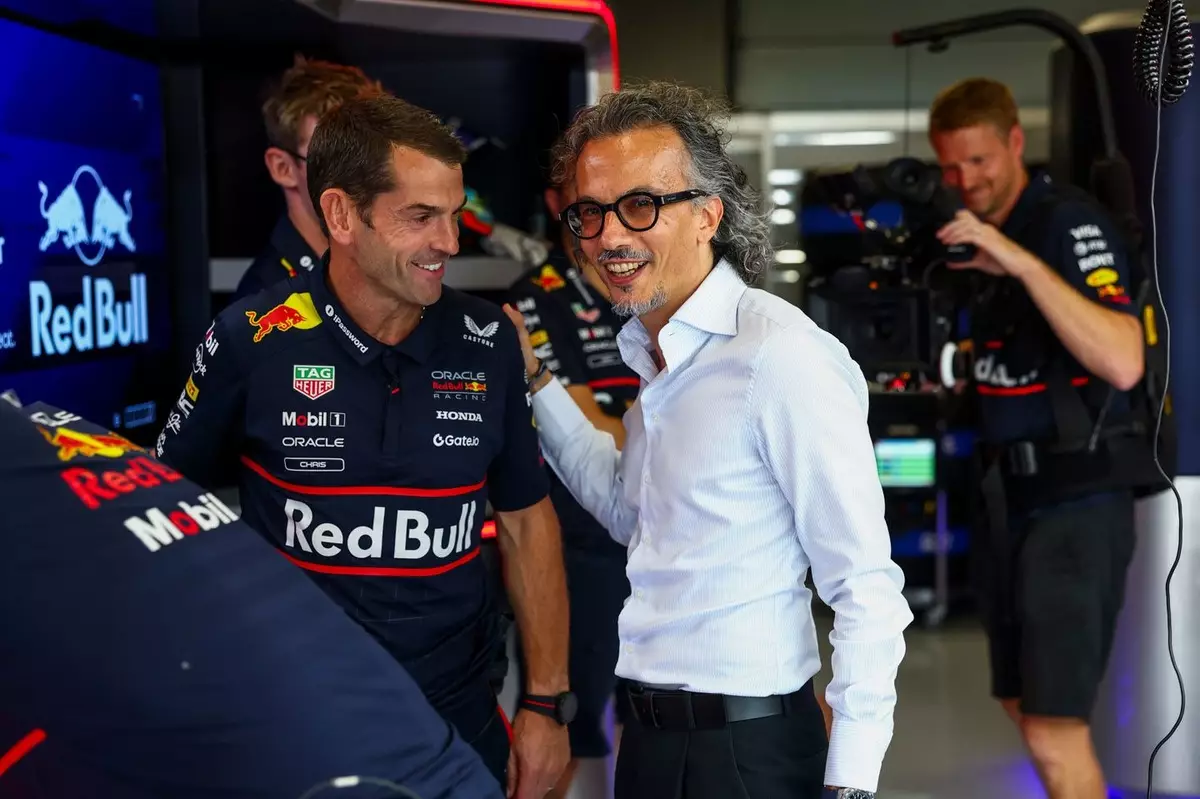The recent appointment of Laurent Mekies as the new head of Red Bull Racing marks a pivotal moment in the team’s evolution. After two decades of Christian Horner’s influential leadership, Red Bull is embarking on a strategic transformation aimed at restoring its dominance and fostering sustainable growth. This shift exemplifies a broader philosophy within the sport: embracing change while leveraging established strengths. Mekies’ elevation to CEO and team principal is not merely a cosmetic change but a calculated move designed to inject fresh energy into an organization that, while historically formidable, has experienced recent challenges.
What sets this transition apart is the emphasis on continuity and strategic alignment. Mekies’ prior experience within the Red Bull ecosystem, notably his tenure at Racing Bulls, provides him with unique insights into the team’s operational DNA. His background as a racer and his ability to connect with people at all levels suggest a leadership style rooted in empathy and collaboration. Such qualities are invaluable in F1, where technical excellence must harmonize with cohesive team dynamics to compete at the highest level. Red Bull’s decision indicates a recognition that sustainable success requires not just technical prowess but also a nuanced understanding of human factors—a trait Mekies embodies.
Red Bull’s Challenges and Opportunities in a Competitive Climate
Despite its previous dominance, Red Bull has faced headwinds recently, with fluctuations in performance and questions surrounding star driver Max Verstappen’s future. These issues highlight the unpredictable and highly competitive nature of Formula 1, where victory is fleeting and often dependent on technological innovation, strategic ingenuity, and team stability.
The move to bring power unit development in-house at Milton Keynes for the 2026 regulations hints at a determined effort to regain a competitive edge. This vertical integration underscores the team’s ambition to control more of its technological destiny, which is crucial given how integral engine performance is to race outcomes. While such a comprehensive overhaul entails risk—significant investment, technological challenges, and the need for seamless integration—the potential payoff could be substantial. Red Bull’s openness to these strategic risks reveals a mindset of resilience and intent to push boundaries where others play safe.
Furthermore, the collaboration between Racing Bulls in Faenza and the main team in Milton Keynes exemplifies a holistic approach to technical excellence. Permane’s confidence in Mekies’ ability to maintain this synergy, despite organizational changes, speaks to an underlying trust in the team’s collective expertise. This interconnectedness is vital for optimizing resources and fostering innovation, especially as the sport advances towards more complex technological regulations.
Leadership and Legacy: Can New Blood Revive the Red Bull Spirit?
The real test lies in Mekies’ ability to forge a new legacy without completely severing the historical identity built under Horner’s tenure. While Horner laid the foundation for Red Bull’s success, the evolving landscape demands fresh leadership that can adapt swiftly to new regulations and competitive pressures.
Mekies’ track record suggests he has the strategic vision and interpersonal skills necessary to steer this transition successfully. His reputation as a “people person” and a racer at heart signifies a leadership style that prioritizes team cohesion and innovation. Red Bull’s strategic investments in internal technology, a renewed emphasis on driver development, and the dedication to in-house powertrain solutions reflect a bold outlook for the future.
However, true leadership in F1 extends beyond organizational restructuring. It requires inspiring staff, nurturing talent, and maintaining a relentless focus on technical excellence. Mekies’ challenge will be to harness the collective passion of the team while instilling a forward-looking mentality that embraces change and exponential growth. If he can do so, Red Bull could not only reclaim its top spot but also set new standards for innovation and competitiveness in Formula 1.
Red Bull’s recent strategic upheaval is both ambitious and necessary. The infusion of new leadership, combined with a clear vision for technological independence and sustained team synergy, positions the team to reinvent itself in a competitive landscape that rewards ingenuity and resilience. Whether Mekies can deliver on these promises remains to be seen, but one thing is certain: Red Bull is restless in its pursuit of excellence, and that relentless drive remains its most potent asset.


Leave a Reply